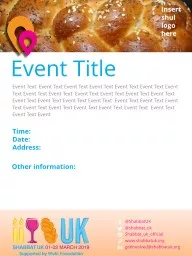PPT-Year 7 Lesson 16 – identifying clauses and noun groups in a media text
Author : audrey | Published Date : 2023-11-05
English You will need A pen or pencil and paper A digital device Review Reviewed the development of noun groups Identified nouns verbs and adverbial phrases Deepened
Presentation Embed Code
Download Presentation
Download Presentation The PPT/PDF document "Year 7 Lesson 16 – identifying clauses..." is the property of its rightful owner. Permission is granted to download and print the materials on this website for personal, non-commercial use only, and to display it on your personal computer provided you do not modify the materials and that you retain all copyright notices contained in the materials. By downloading content from our website, you accept the terms of this agreement.
Year 7 Lesson 16 – identifying clauses and noun groups in a media text: Transcript
Download Rules Of Document
"Year 7 Lesson 16 – identifying clauses and noun groups in a media text"The content belongs to its owner. You may download and print it for personal use, without modification, and keep all copyright notices. By downloading, you agree to these terms.
Related Documents














